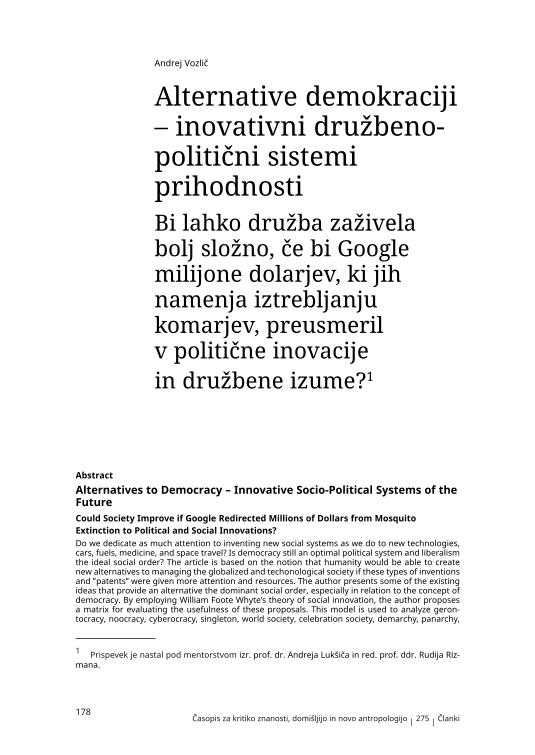Do we dedicate as much attention to inventing new social systems as we do to new technologies, cars, fuels, medicine, and space travel? Is democracy still an optimal political system and liberalism the ideal social order? The article is based on the notion that humanity would be able to create new alternatives to managing the globalized and techonological society if these types of inventions and ’’patents’’ were given more attention and resources. The author presents some of the existing ideas that provide an alternative the dominant social order, especially in relation to the concept of democracy. By employing William Foote Whyte’s theory of social innovation, the author proposes a matrix for evaluating the usefulness of these proposals. This model is used to analyze gerontocracy, noocracy, cyberocracy, singleton, world society, celebration society, demarchy, panarchy, futarchy, and delegative democracy. The author finds that there is a serious lack of viable and useful socio-political alternatives, but there is an even bigger issue: in contrast to the natural sciences, social scientists do not have a laboratory for testing alternative models in an efficient and harmless manner.




